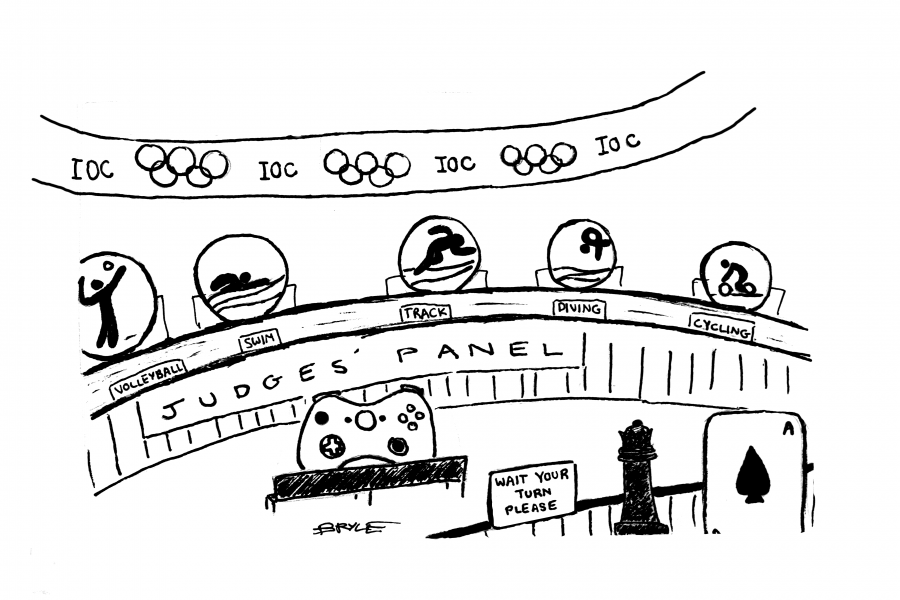The Olympics are steeped in greatness. When we think of the Olympics, we think of the likes of Michael Phelps and Usain Bolt. Sports like track and swimming dominate the summer, while skiing and snowboarding capture our attention in the wintertime. Although sports like these are ingrained in our minds as the Olympic sports, there are several sports that Olympic athletes take part in that are not quite as popular in the U.S.—handball, curling, and badminton, to name a few. Nonetheless, these less recognizable sports are still viewed as sports, activities that, according to the dictionary, involve physical exertion, skill, and competition for entertainment purposes.
But recently, a new event was suggested for the 2024 Olympics, one that pushes this definition: competitive video gaming, also known as esports.
The proposition to add esports to the Olympic games was met with backlash from many who said that video gaming is not a sport and thus does not merit consideration for an international sports competition on such a level of prestige. Among the dissenters was International Olympic Committee (IOC) President Thomas Bach, who ultimately denied esports entry into the 2024 games.
Clearly, video games are not sports in the conventional sense. When I first mentioned that esports were being considered at all, I was met with “Really?” and “That’s the most ridiculous thing I’ve ever heard.” Video gaming fits into the category of “debatable” sports, alongside chess or poker—they do require skill and strategy and entail competition, but do not involve “physical exertion,” as the dictionary phrases it (unless you count sweaty palms). So it makes sense that people would be hesitant to include esports in an international sports competition.
Personally, I do not find it remotely surprising that video games were at least considered as an Olympic sport—their worldwide audience is expected to double between 2015 and 2020, and competitive esports has become increasingly lucrative over the years, with some competitions boasting monetary prizes in the seven or eight figure range. In addition, Business Insider explained that including esports in the Games could potentially boost viewership of the Games among younger people, as a majority of the esports audience is comprised of millennials. This would undoubtedly be something to consider for the IOC, since ratings for the Olympics began to slip in 2016. The IOC is still technically a business, after all.
I understand why esports was considered. However, I must ask, if videogames are considered Olympics material, why not the other “questionable” sports.
Sports like chess and poker can be just as entertaining to watch as video games, and thus would garner a similar audience. Not to mention the stigma against less physical sports in the Olympics is apparently beginning to dissolve.
Take poker as an example. In 2010, ESPN writer Gary Wise asked professional poker players for their opinion on poker’s inclusion in the Olympics. Mike Sexton, a member of the Poker Hall of Fame, said “in terms of the mental side of it, I don’t think any sport ranks higher, but I still think the Olympics is for physical sports, and poker doesn’t fit in that category.” The same sentiment applies to video games. While it does require skill and strategy, it is simply not physical enough to be included in the Olympics. So if the requirement of physicality is being set-aside, even temporarily, for esports, then games like chess and poker should be equally considered.
Ultimately, it is Bach and the rest of the IOC who must decide whether they want to include these non-physical sports in the Olympics. I am not one to tell them which sports they should and shouldn’t admit. But if the Olympics is to take a turn toward less physical sports, all of them need to be considered.






